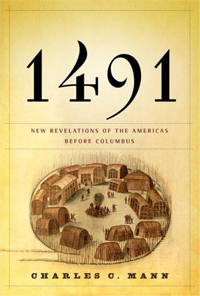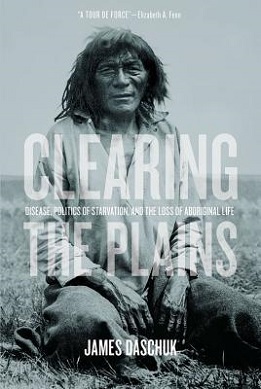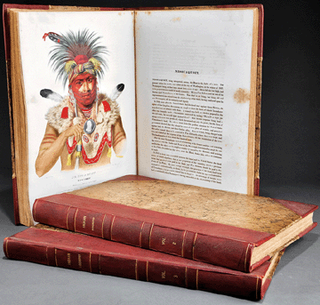 W
W1491: New Revelations of the Americas Before Columbus is a 2005 non-fiction book by American author and science writer Charles C. Mann about the pre-Columbian Americas. It was the 2006 winner of the National Academies Communication Award for best creative work that helps the public understanding of topics in science, engineering or medicine.
 W
W1493: Uncovering the New World Columbus Created is a nonfiction book by Charles C. Mann first published in 2011. It covers the global effects of the Columbian Exchange, following Columbus' first landing in the Americas, that led to our current globalized world civilization. It follows on from Mann's previous book on the Americas prior to Columbus, 1491: New Revelations of the Americas Before Columbus.
 W
WAmazon Watershed : the new environmental investigation is a 1991 book by British writer and environmental and political activist, George Monbiot.
 W
WClearing the Plains: Disease, Politics of Starvation, and the Loss of Aboriginal Life is a 2013 book by Canadian scholar James Daschuk. The book takes an epidemiological approach and documents the historical roots of modern health disparities between Canadians and Indigenous peoples living in what is now Canada. In doing so, Daschuk highlights in particular the role of Canadian policy designed to displace Indigenous populations from their traditional territories to make way for the settlement of the Prairies, including policies that amounted to forced starvation. The book implicates numerous government officials, including John A. Macdonald, Canada's first Prime Minister, in advocating for and designing such policies. Daschuk thus builds on the work of scholars such as Sarah Carter who have highlighted the shortcomings of Canadian Indigenous policies in the settlement period, along with scholarship on the social determinants of health. In an article about his research, Daschuk argued that these types of policies were part of a process of genocide and ethnic cleansing.
 W
WThe Columbian Exchange: Biological and Cultural Consequences of 1492 is a 1972 book on the Columbian exchange by Alfred W. Crosby.
 W
WGuns, Germs, and Steel: The Fates of Human Societies is a 1997 transdisciplinary non-fiction book by Jared Diamond. In 1998, Guns, Germs, and Steel won the Pulitzer Prize for general nonfiction and the Aventis Prize for Best Science Book. A documentary based on the book, and produced by the National Geographic Society, was broadcast on PBS in July 2005.
 W
WThe History of the Indian Tribes of North America is a three-volume collection of Native American biographies and accompanying lithograph portraits originally published in the United States from 1836 to 1844 by Thomas McKenney and James Hall. The majority of the portraits were first painted in oil by Charles Bird King. McKenney was working as the US Superintendent of Indian Trade and would head the Office of Indian Affairs, both then within the War Department. He planned publication of the biographical project to be supported by private subscription, as was typical for publishing of the time.
 W
WIndian Givers: How the Indians of the Americas Transformed the World is a 1988 non-fiction book by American author Jack Weatherford. The book explains the many ways in which the various peoples native to North and South America contributed to the modern world's culture, manufacturing, medicine, markets, and other aspects of modern life.